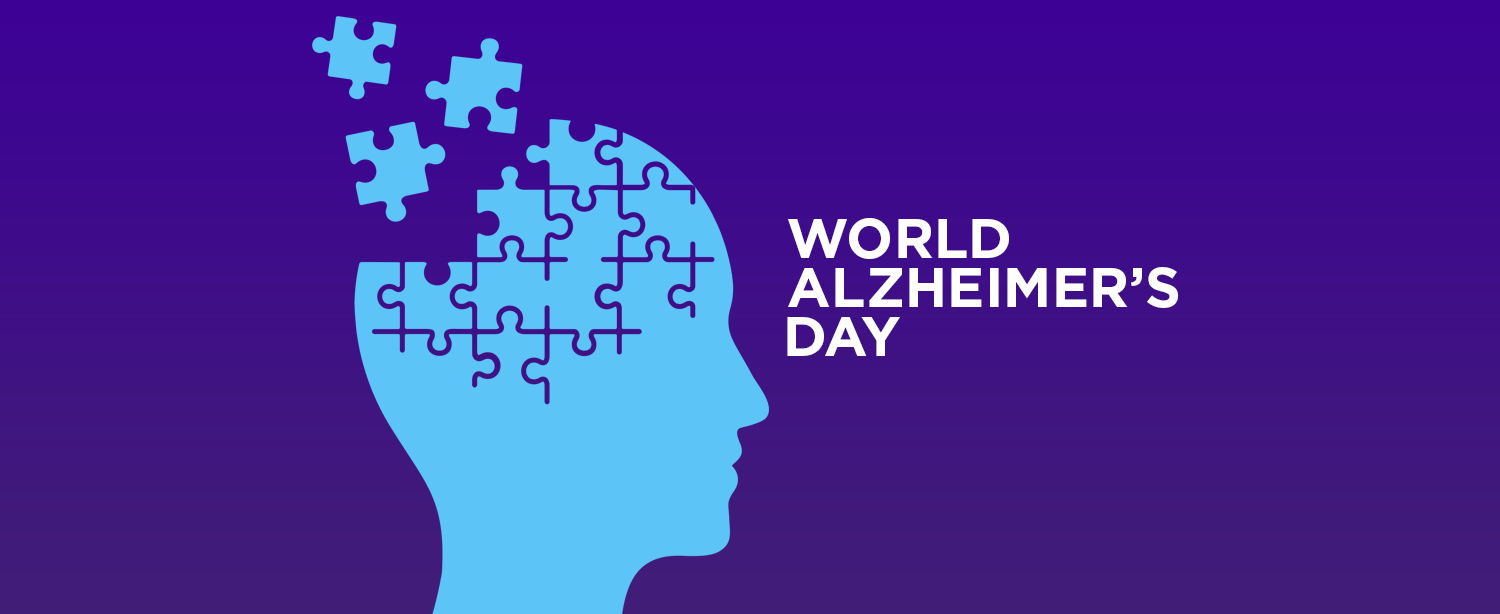Alzheimer’s disease is a progressive form of dementia. Dementia is a broader term for conditions caused by brain injuries or diseases that negatively affect memory, thinking, and behaviour. These changes interfere with daily living. Most people diagnosed with Alzheimer’s disease need full-time support at later stages to complete daily living tasks such as getting showered and dressed, eating, or completing any household task.
Alzheimer’s disease accounts for 60 to 80 percent of dementia cases. Most people with the disease are diagnosed after age 65. If it’s diagnosed before then, it’s generally referred to as early onset Alzheimer’s disease. Researchers have discovered that Alzheimer’s disease is caused by the build up of proteins, sometimes called plaques or tangles, within the brain. However, the cause of these protein build-ups is still unknown. Some risk factors have been determined, including age, genetics, and head injuries. Proper care giving and support can increase a person’s quality of life. There’s no cure for Alzheimer’s, but there are treatments that can slow the progression of the disease.
Symptoms of Alzheimer’s:
Everyone has episodes of forgetfulness from time to time. But people with Alzheimer’s disease display certain ongoing behaviours and symptoms that worsen over time. These can include:
- memory loss affecting your daily activities, such as your ability to keep appointments.
- trouble with familiar tasks, such as using a microwave.
- difficulties with problem-solving.
- trouble with speech or writing.
- becoming disoriented about times or places.
- decreased judgment.
- decreased personal hygiene.
- mood and personality changes.
- withdrawal from friends, family, and community.
Alzheimer’s Risk Factors
Here are some of the risk factors which make you more prone to Alzheimer’s:
- Age: Most people who develop Alzheimer’s disease are 65 years of age or older.
- Family history: If you have an immediate family member who has developed the condition, you’re more likely to get it too.
- Genetics: Certain genes have been linked to Alzheimer’s disease.
- Head injuries: A serious head injury can highly increase your chance of getting Alzheimer’s.
Alzheimer’s Stages
Alzheimer’s is a progressive disease, which means the symptoms will gradually worsen over time. Alzheimer’s is broken down into seven different stages:
- Stage 1: There are no symptoms at this stage, but there might be an early diagnosis based on family history.
- Stage 2: The earliest symptoms appear, such as forgetfulness.
- Stage 3: Mild physical and mental impairments appear, such as reduced memory and concentration. These may only be noticeable by someone very close to the person.
- Stage 4: Alzheimer’s is often diagnosed at this stage, but it’s still considered mild. Memory loss and the inability to perform everyday tasks is evident.
- Stage 5: Moderate to severe symptoms require help from loved ones or caregivers.
- Stage 6: At this stage, a person with Alzheimer’s may need help with basic tasks, such as eating and putting on clothes.
- Stage 7: This is the most severe and final stage of Alzheimer’s. There may be a loss of speech and facial expressions.
As a person progresses through these stages, they’ll need increasing support from a caregiver who can be a family member or a hired help.
Myths and Facts
Here are some myths and facts about Alzheimer’s:
Myth 1: Memory loss is a natural part of aging.
Reality: As people age, it’s normal to have occasional memory problems, such as forgetting the name of a person you’ve recently met. However, Alzheimer’s is more than occasional memory loss. It’s a disease that causes brain cells to malfunction and ultimately die. When this happens, an individual may forget the name of a long time friend or what roads to take to return to a home they’ve lived in for decades.
Myth 2: Alzheimer’s disease is not fatal.
Reality: Alzheimer’s disease has no survivors. It destroys brain cells and causes memory changes, erratic behaviours and loss of body functions. It slowly and painfully takes away a person’s identity, ability to connect with others, think, eat, talk, walk and find his or her way home.
Myth 3: Only older people can get Alzheimer’s.
Reality: Alzheimer’s can strike people in their 30s, 40s and even 50s. This is called as early onset Alzheimer’s.
Prevent Alzheimer’s
Here are a few things you can do to prevent Alzheimer’s:
- Be physically active.
- Learn new things, keep your brain busy.
- Adapt healthy eating habits.
- Get enough sleep.
- Lower your stress levels.
- Treat depression.
- Conduct regular health checks ups to maintain normal blood pressure, blood sugar, cholesterol and weight.
- Avoiding smoking & excessive alcohol intake.
The specialised Alzheimer’s Clinic at Kokilaben Dhirubhai Ambani Hospital sees numerous patients every year. Our team of experts offer holistic support for the patient to live better. Please see the below website link for further details:
https://www.kokilabenhospital.com/departments/clinicsatkh/alzheimersclinic.html


